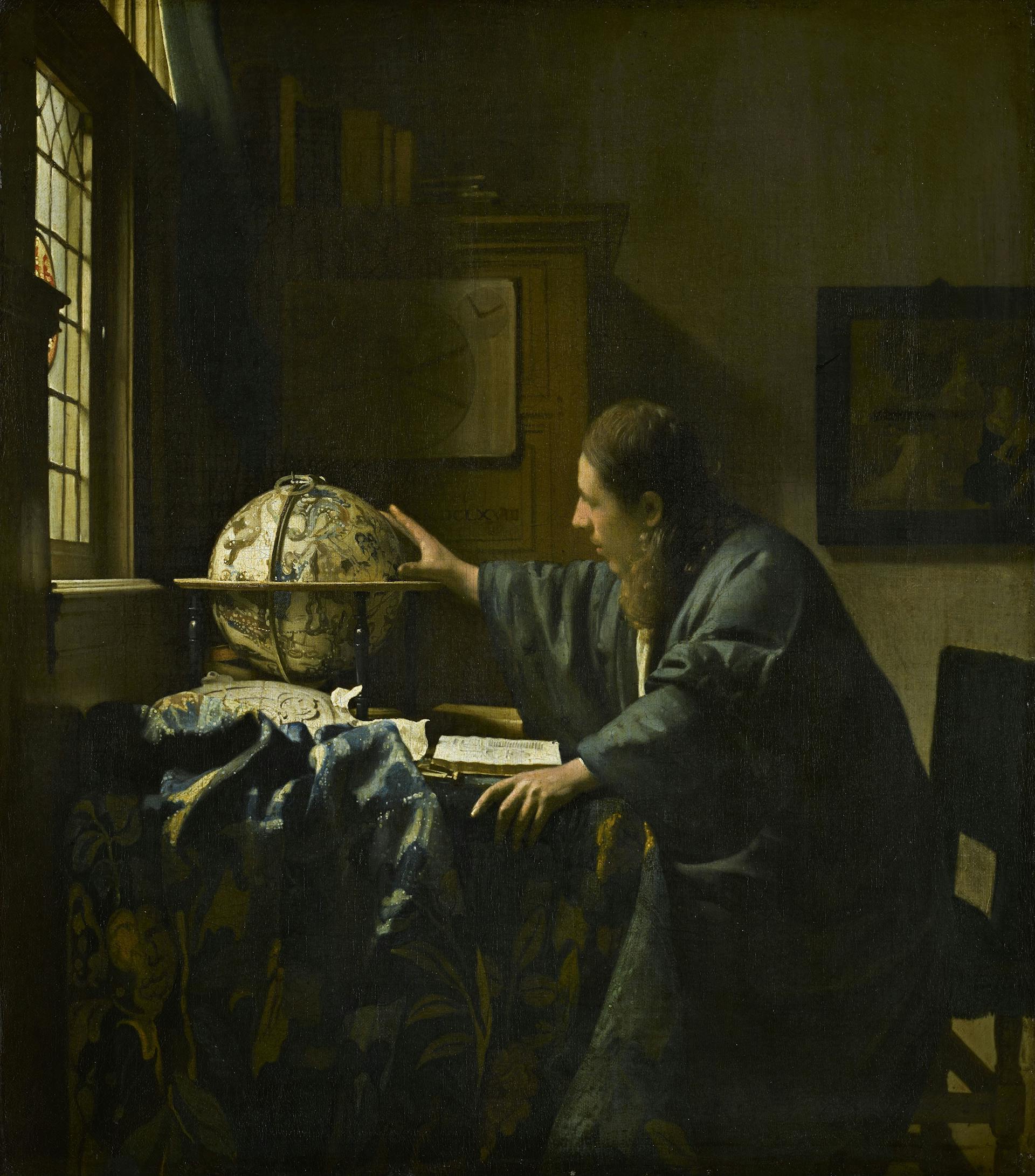
The Astronomer, Johannes Vermeer, 1668
I like to figure things out. I don't like it when I don't understand something. So I spend a lot of time trying to understand things.
But how does one get better at understanding things? Is there a secret hack? Does the practice of trying to understand things well lead to the ability to think well? And what does it mean to understand something well?
To me, understanding something well means being able to reproduce the idea through speech (explaining to a 5 year old) or craft (coding from scratch) in a simpler, concise manner, like compression, ideally lossless so that you're not straying too far away from the original idea.
Kasra has more comprehensive and actionable ideas on how to think well and understand things, and here's my takeaway on it.
pay attention
pay attention to when you do or don't understand something
- your goal is to get from point A (material is inscrutable) to point B (material is totally intelligible)
- break things down into manageable pieces and understand those first
- make a list of all the words you don't understand and look them up
- keep asking yourself: What are the things I do and don’t understand? At what point in the chain of reasoning did I get lost? What do I need to figure out next to make progress?
- What does it mean to understand something?
- something to do with your mind entering an isomorphic state to the mind of someone else who does understand it.
- how do you know you achieved this?
- Seek feedback in as many forms as possible.
- Play around with the idea, re-explain it to yourself, ask yourself why the concept or theory is in this particular shape rather than another shape.
- What are the implications of the theory? What does it leave unresolved?
- Share all of these thoughts with others and see whether it makes sense to them.
Understand the history
- divide the space of things you're trying to learn into what and the why
- what: content of our models and theories
- why: why this conclusion? answer lies in a history of experiments, proposals, and disagreements
- Reproduce the trail: write out your own proof for the theorem, implement your own version of the algorithm, design your own hypothetical experiment.
- Building intuition: When you know the trail of experiments and arguments that led us here, you start to build an intuition for how to solve future problems.
flexibility > correctness
- for big questions with no answers, have the mental flexibility to “take on” different perspectives and see the merits and flaws of each.
- constantly expose ourselves to different schools of thought and attempt to understand them even when we think they’re probably wrong.
don't cling on to a singular Truth
If understanding is contorting your mind to be isomorphic to someone else’s, the holy grail is to be able to contort quickly between various frames of thinking, to see how something that seems absurd on its face might actually be the next world-changing insight.